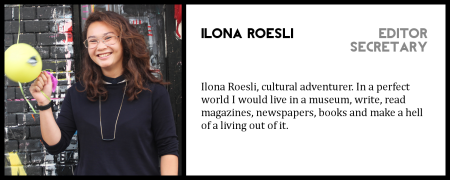There has never been a festival that I have established such a love-hate relationship with as much as I have with IDFA (International Documentary Film Festival Amsterdam). When I was younger I had to review a cultural activity for a school assignment and my teacher was handing out these flyers for DOC U, a program section aimed at introducing young audiences to documentary cinema. This turned out to be the moment from which my love for documentaries would grow.
Now, six years later, what strikes me most about my choice to go and see a documentary about young hip hop culture is that between then and now I have often chosen to see the most controversial, tragic, appalling, and shocking documentaries that give the viewer hope, only to shatter it in the closing credits when the documentary-maker continues their never-ending, unchanged story: “However, after making this documentary…” And this happened with almost every documentary.
Last year, when I continued to stumble upon this feeling, I included a sense of variation in my visits to IDFA-screenings. Occasionally going to a ‘fun’ documentary about music might minimize this unsettling feeling of guilt and powerlessness. And it is precisely this recurring thought that I hate about my relationship with IDFA. The pretentious feeling of buying tickets for several insightful documentaries, with the impossibility of making a useful contribution to the situation that is being portrayed. Being able to choose one documentary out of 300 feels like consciously ignoring the other 299 issues raised. I have forgotten over half of the documentaries I have seen, I’m still unaware of the current situation of the other half and to understand each situation as a whole would cost me the time and energy that I am now using for drinking coffee and going out with friends. Even buying off my conscience by donating money is not an option, because yes, I saw a documentary about the paradox of humanitarian aid. When I embarked upon this journey six years ago, I would never have thought to question good intentions. Even a good intention can be in need of a new perspective.
Sometimes the content is hard to digest, while at the same time nourishable. In an attempt to write about my experiences as a viewer, I found myself torn between the ‘right’ ways of watching a documentary and the ‘right’ ways of trying to process that information afterwards. I have always been first and foremost concerned with documentaries as a form of news-bombardment. However, like literature, the documentary is an art form that tries to shed light on societal issues in ways news media do not. The documentary challenges me to refute or include different perspectives and opinions.
IDFA’s mission statement on their website reads: “Documentaries stimulate the viewer to think further, to discuss, to ask questions. The best documentaries make maximum use of the opportunity to communicate with the audience, whether through a wake-up call, teasing, shocking or even pleasing.” It’s time to grow up and replace the love-hate relationship with a new form of dialogue.
Header image: still from CITIZENFOUR screening @ IDFA 2014


Reblogged this on dear unknown reader.
A bit late, but thanks for reblogging our article!